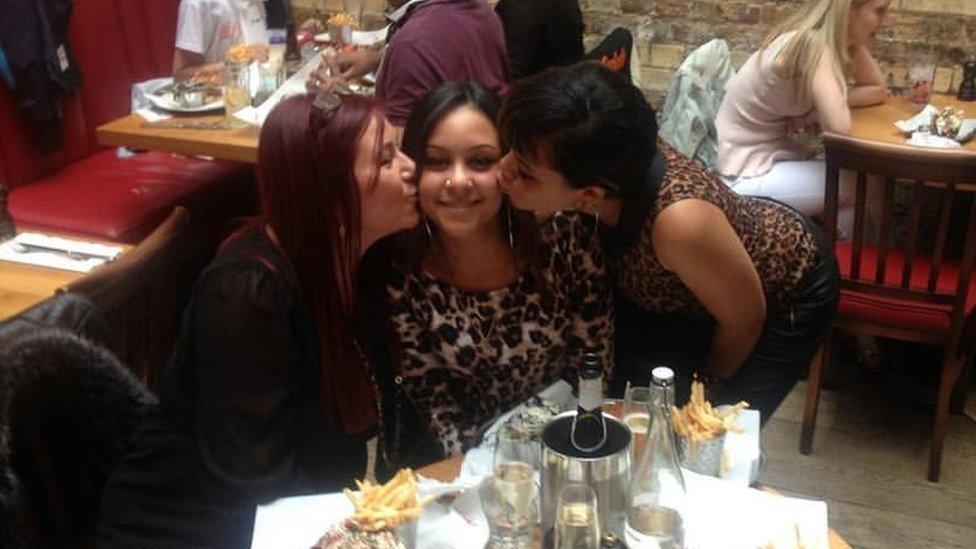Jourdain John-Baptiste: Mum loses balcony fall death legal fight
- Published

Jourdain John-Baptiste died three days after falling from the balcony of her fourth-floor flat
The mother of a woman who fell to her death from a balcony has lost a High Court challenge against a decision not to prosecute her daughter's boyfriend.
Jourdain John-Baptiste was 22 when she fell from her fourth-floor flat in Enfield, north London, in August 2015.
The Crown Prosecution Service (CPS) brought no charges against her boyfriend, which lawyers for her family claimed was "irrational".
But Lord Chief Justice Lord Burnett said the CPS decision was "reasonable".
After the hearing, her mother Tracey John-Baptiste said: "We have lost my beautiful daughter and now we have lost the chance to get justice.
"Even those against prosecuting in the CPS recognise this is a finely-balanced decision.
"Why not put this to the jury who can hear all the witnesses and decide?"

Jourdain, pictured with friends and family, was described as a "wonderful daughter"
The boyfriend, who cannot be named for legal reasons, was in the flat with Ms John-Baptiste at the time of the fall and last year her mother told the BBC witnesses said they heard the couple arguing.
Mrs John-Baptiste asked for the CPS decision not to prosecute to be reviewed and was told initially there ought to be a prosecution, which a senior prosecutor revised.
At an earlier hearing in London, the family's barrister Karon Monaghan QC said there was "ample evidence" to support a prosecution, and there was a "threatening" text message on Ms John-Baptiste's phone from her boyfriend saying: "When I see u again I'll drop you."
Ms Monaghan said the prosecutor who made the final decision based it on an "unevidenced and gendered assumption" that Ms John-Baptiste may have slipped in a state of "high emotion".
But judges, who were asked to quash the decision, said it was "impossible" to conclude the decision was "wrong in law".
Lord Burnett said a jury would be invited to say "the only realistic explanation for Ms John-Baptiste's fall was that she was fleeing from a threat of violence", which he said all involved accepted "was one possible explanation".
"But the question for the decision-makers was whether it was more likely than not that a jury would reach that conclusion at the end of a criminal trial," he added.
A CPS spokesman said: "We understand how difficult this has been for the family. We considered all the information given to us by the police investigation.
"We can only prosecute an offence when there is sufficient evidence to do so.
"The original decision has now been tested by a Victim's Right to Review scheme (VRR) and now by a High Court hearing."
- Published31 May 2018

- Published24 August 2016

- Published24 August 2015
